

Empowering Minds
AREA ORGANIZATIONS HELP SHAPE



FUTURE WORKERS, ENTREPRENEURS

AND BUSINESS LEADERS
SPOTLIGHT Q&A: MBA GEARS UP FOR FIRST ANNUAL LEADERSHIP SUMMIT


SPECIAL SECTION: MBA RECOGNIZES
TRAINING GRADUATES





AREA ORGANIZATIONS HELP SHAPE



FUTURE WORKERS, ENTREPRENEURS

AND BUSINESS LEADERS
SPOTLIGHT Q&A: MBA GEARS UP FOR FIRST ANNUAL LEADERSHIP SUMMIT


SPECIAL SECTION: MBA RECOGNIZES
TRAINING GRADUATES


SPECIAL SECTION TRAINING GRADUATES
NETWORKING AND MORE
See the latest happenings at the MBA and with members in the region!
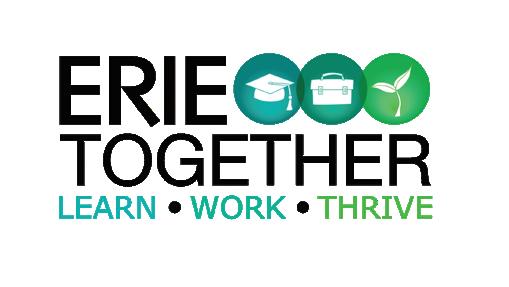

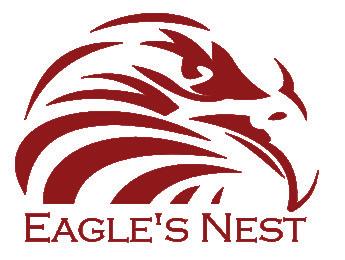
WHAT’S INSIDE | FEATURED STORY
3 CLOSING THE SKILLS GAP
The essential role of education.
COVER STORY | LOCAL PROFILE
4
EMPOWERING MINDS
Experts explain why area organizations are vital to helping shape future workers, entrepreneurs and business leaders.
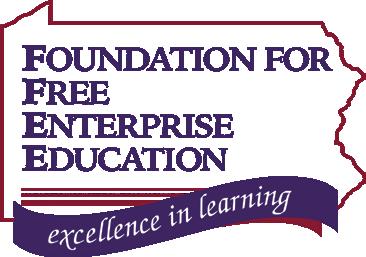
SPOTLIGHT Q&A | TRAINING
7 Patty Welther, manager of Member Engagement at the Manufacturer & Business Association (MBA), explains what’s in store for the MBA’s first annual Leadership Summit on Wednesday, April 19, at the MBA Conference Center in Erie and why employers and their key team members should plan to attend.
LEGAL BRIEF | WORTH NOTING
9
A look at the upcoming reporting requirements for businesses.
Brian Cressman
ON THE HILL | AGENDA
13 How Pennsylvania Governor Josh Shapiro is courting business.
Jezree Friend
INSERT | COMPUTER TRAINING
From Excel to PivotTables, see this special catalog of all our computer training offerings.
Executive Editor
Karen Torres ktorres@mbausa.org
Contributing Writers
Brian Cressman
Jezree Friend
Casey Naylon
Tammy Lamary-Toman
Feature Photography iStockPhoto
Additional Photography
Christine DeSantis
Karen Torres
Patty Welther
Design, Production & Printing Printing Concepts Inc. info@printingconceptsonline.com
Advertising Sales Frank Mehler 814/833-3200 fmehler@mbausa.org
Chris Peterson 814/833-3200 cpeterson@mbausa.org
On the Cover: The connection between business and education has a tremendous impact on the industry and the economy. For full story, see page 4.

Mission Statement: The Manufacturer & Business Association is dedicated to providing information and services to its members that will assist them in the pursuit of their business and community interests. – Board of Governors
Manufacturer & Business Association

Headquarters: 2171 West 38th Street Erie, PA. 16508
Pittsburgh: 850 Cranberry Woods Drive, Suite 2224 Cranberry Township, PA 16066 814/833-3200 |800/815-2660 | mbausa.org

Are you looking to gain the relevant skills for a future-proof education? PennWest University – Global Online is built for maximum flexibility and a ordability to pursue what’s next in your career. With more than 25 master’s degrees including Exercise Science, Library Science, and an online MBA, plus four doctoral degrees and more than 35 graduate certificates to choose from, your path to know more – and be more – is waiting. Whether you want to accelerate your current direction or pivot to something brand new, PennWest is here for you.
Are you looking to gain the relevant skills for a future-proof education? PennWest University – Global Online is built for maximum flexibility and a ordability to pursue what’s next in your career. With more than 25 master’s degrees including Exercise Science, Library Science, and an online MBA, plus four doctoral degrees and more than 35 graduate certificates to choose from, your path to know more – and be more – is waiting. Whether you want to accelerate your current direction or pivot to something brand new, PennWest is here for you.


As the need to close the skill gaps increases, experts say we must look to resources that not only meet the needs of employers but also the modern learner. Interestingly, there is overwhelming unity around the kinds of skills most needed, and they aren’t only traditional vocational skills, but competencies in activities supporting collaboration, communication and mental agility.
According to Bridging the Skills Gap: Workforce Development in Changing Times survey conducted by the Association for Talent Development, 83 percent of businesses are reporting a skills gap in their organizations due to the pandemic, increased resignations, changing technology and an aging workforce.
Among organizations surveyed, the largest skills gaps were reported in criticalthinking and problem-solving skills (65 percent), managerial skills (55 percent), and communication and interpersonal skills (53 percent).
Talent development professionals surveyed said they expect to continue to face gaps in the future in criticalthinking and problem-solving skills (56 percent), leadership skills (53 percent), and creativity and innovation skills (50 percent), researchers said.

Other Key Takeaways of the Report Include:
• Six in 10 participants said the skills of the current workforce do not match changes in the company’s strategy, goals, markets or business models.
• Most participants say their organization is addressing the skills gaps they face by providing more training internally in technology-aided settings such as e-learning or virtual classrooms (60 percent), and more in-person training (21 percent).
• A majority of respondents (57 percent) said that they were addressing skills gaps by examining what skills the organization needs to be successful now and in the future, while 55 percent said that they were assessing current gaps and creating a plan to address the most critical areas.
In this issue of the MBA Business Magazine, we’ll highlight some of the educational resources that are helping to shape the future workforce, entrepreneurs and business leaders in our community. In addition, we’ll hear from the MBA’s Manager of Member Engagement Patty Welther about the value of attending the MBA’s first annual Leadership Summit on April 19 at the MBA Conference Center in Erie.
Plus, learn what our experts are saying about the importance of training, especially computer training in today’s 21st century work world. You’ll also want to check out this month’s special Computer Training insert to see all the new courses that the MBA has to offer.
To learn more about how the MBA can assist your organization in closing the skills gap at your organization, visit mbausa.org.
Like a cog in a wheel, the connection between business and education has a tremendous impact on industry and the economy, shaping future workers, entrepreneurs and business leaders. In northwest Pennsylvania (NWPA), those inner workings are intricately linked.


“A key source of prosperity and rising standards of living is a dynamic and well-functioning economy,” explains Ken Louie, Ph.D., director of the Economic Research Institute of Erie (ERIE) at Penn State Behrend. “It is therefore essential that we educate our youth on the important elements of business, industry and the economy. “
According to Louie, programs such as these teach youth valuable skills that will empower them to contribute to the vitality of our regional economy as future business leaders, entrepreneurs and innovators. Furthermore, as technology continues to advance, local technical education programs will be an important source of well-trained individuals who can help us meet our workforce needs of the future.
“Perhaps equally important,” says Louie, “is the fact that these educational programs can help to channel the energy and talent of our local youth into productive endeavors and a lifetime of learning, all of which will contribute to improving the quality of life in our community and the betterment of our society.”
The Foundation for Free Enterprise Education has been a vital part of this educational landscape since 1979, providing high-quality, practical hands-on learning experiences to more than 97,000 young participants through
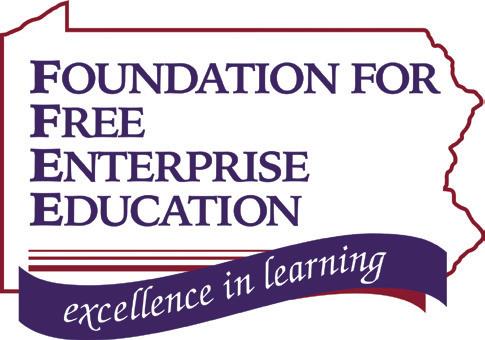
three youth economic programs: Pennsylvania Free Enterprise Week (PFEW), The Stock Market GameTM (SMG), and the Speaker Series. The programs provide a strong foundation upon which students build the knowledge, skills, experience, and relationships that ultimately strengthen Pennsylvania and the nation. Last year, more than 12,000 students were impacted by their participation in the Foundation’s programs and this year they are on track to educate even more.
“Our economic future depends on a welleducated, skilled workforce,” explains Foundation President and Chief Executive Officer Karen Musante. “PFEW, SMG and the Speaker Series provide participants with the knowledge and skills necessary to become quality employees, employers and leaders. The business community, our state and our nation face many challenges in the coming years. FFEE programs are a critical component of effective workforce development, financial literacy, and preparing our next great generation of business and community leaders.”
The Eagle’s Nest Leadership Corporation campus, located on Erie’s east side, focuses on doing whatever it takes to build up, encourage, support and protect Erie’s at-risk community. Eagle’s Nest has impacted the community by serving approximately 1,782 people since programming began in 2015 (e.g., Employability Initiative, School of Financial Literacy, African American Boys Academy, School of Academic Distinction, Group Daycare, Food Relief Program, COVID-19 Awareness campaign, and conferences/seminars/ symposiums). This does not include the hundreds of people who enter the building yearly for quick service or have a quick need.
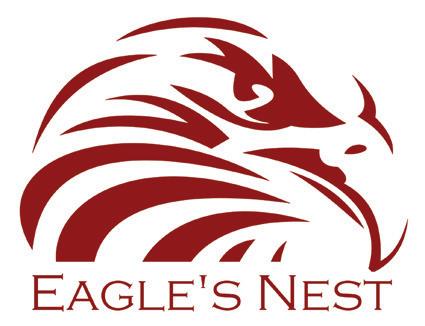
“Eagle’s Nest programs have steered economic and workforce developments by creating job opportunities, providing life and money management training, supporting local business with qualified staffing, and adding diversity to the workplace for a more culturally sound and culturally sensitive environment,” explains Eagle’s Nest Executive Director Onjanette Jackson, DBA. “It has provided the educational tools to assist people young and old so they can become more productive citizens. In addition, the entire Eagle’s Nest campus located on the east side has renovated and built multiple properties
that increase the value of the neighborhood. Combined, these produce profitable communities throughout Erie and sustain neighborhoods while promoting and growing businesses.”
Erie Together, a countywide collective impact movement, is also doing its part to make the Erie region a community where everyone can learn, work and thrive. Among its priorities are two initiatives related to career exploration: the Erie County Career Pathways Alliance (ECCPA) and Career Street.

The ECCPA’s mission is to implement a countywide career pathways system that successfully prepares Erie County students for post-secondary education and training and future careers. Meanwhile, Career Street links employers with educators to execute high quality career exploration experiences. Currently, there are 61 schools, three career and technical centers in 13 different districts across four different counties and 270 employers engaged. Since its launch in 2014, Career Street has facilitated more than 46,000 student experiences benefiting K–12 students and employers across Erie County.
“Erie Together’s cross-sector ECCPA network brings all the partners together — schools, postsecondary providers, workforce developers and employers — to identify and address employer needs, influence educational offerings, and better prepare students for success,” explains Erie Together Director Mary Bula. “Career Street is the vehicle through which high quality career exploration experiences are carried out. Through these two initiatives we are providing employers opportunities to promote their business and help shape the future workforce, and helping students better prepare for future jobs.”
real parts for real companies in Erie. The program is a partnership between the Millcreek Township School District and NWIRC (Northwest Industrial Resource Center) to help create solutions to fill the manufacturing future talent pipeline in the NWPA region.
According to McDowell Manufacturing teacher Kyle Bucholtz, the program has grown and has more than 60 students enrolled in the 2022–2023 school year. The program even received national attention from Industry Week magazine.

“Ensuring that the workforce of tomorrow is first off excited about manufacturing, and then also trained are the pillars of McDowell Manufacturing,” says Bucholtz. “Some of the same strategies that make high school sports so successful are implemented in the program to create a level of excitement and enthusiasm, which we believe hasn’t been seen in manufacturing education.”
At the co-educational, independent toddler through Grade 8 Erie Day School (EDS), inspiring future leaders is a proud part of its history. Dating back to 1929 and Erie industrialist Charles Strong, families have depended on Erie Day School to develop their children into confident, open-minded,
innovative thinkers and communicators. Today, more than 25 of the most successful local business leaders trust Erie Day School with their legacy.

Leadership opportunities in service among groups such as the National Junior Honor Society, Student Council, National Junior Arts Honor Society, and “big buddies” are woven into daily schedules. Learners thrive with teamwork opportunities on the athletic field alongside academic leagues such as Lego Robotics, Math Counts, Model United Nations, and Speech/ Debate/Civics experiences. Unsurprisingly, these opportunities, in tandem with academics, visual and performing arts, STEAM and physical education, play a crucial role in developing leaders with an entrepreneurial mindset.
According to EDS Development Director Christina Katen, “The future of NWPA business and industry starts by preparing today’s students to lead tomorrow.”
At the college level, The University of Pittsburgh at Bradford, located on the Pennsylvania-New York border, has provided a learning environment where students can thrive. In recent years, the university has been cited by U.S. News & World Repor t and Washington Monthly as a top performer in social mobility. More than 40 percent of PittBradford’s student population are the first in their family to attend college.

In January, Pitt-Bradford opened a $24.5 million, 40,000-square-foot state-of-the-art building to support its existing computer information systems and technology program and two new engineering technology programs — energy engineering and mechanical engineering.


Matt Kropf, Ph.D., associate director of engineering technology, designed the new programs with substantial input from manufacturers in the Northern Tier of Pennsylvania and Southern Tier of New York, such as Zippo Manufacturing Co., American Refining Group (both in Bradford) and Napoleon Engineering Services of Olean, New York.
“Our students will know not only know how to design something, but they will also understand how it is manufactured and the machines that something is manufactured on,” Kropf says.
Jake Bryner, chief technology officer at Control Chief Corp. in Bradford, is looking forward to working with interns and graduates from the program. “Having students who have practical experience is what I want as an employer.”
FIVE AMAZING SPEAKERS
EXECUTIVE PANEL DISCUSSION
Christie DrabiC, VP, Program management, WabteC CorPoration

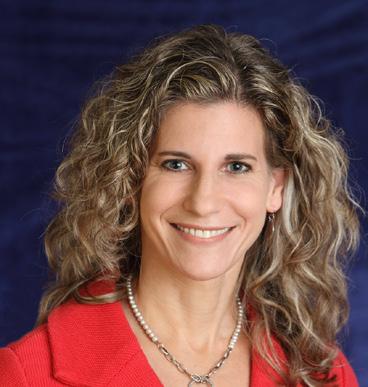
Jeremy young, Ceo, FeDeral resourCes
anDy renkey, PresiDent, harmony Castings


PREMIUM NETWORKING OPPORTUNITY


BREAKFAST • LUNCH • SNACKS & REFRESHMENTS
Who should attend: exeCutiVe anD miD-leVel management team members

Cost: $325 MBA MeMBer {$1,800 for TABle of 6}
$500 NoNMeMBer {$2,800 for TABle of 6}
lIMIted seatInG – ReGIsteR todaY! VisiT mbausa.org for More iNforMATioN or coNTAcT MelissA AT 814/833-3200, 800/815-2660 or mlesnieWski@mbausa.org To sAVe your seAT.
VisiT mbausa org/leaDershiP-summit/ To see The full AgeNdA.

spoNsored By:

Continuous education opens doors. In today’s workplace, the more skills and training you have, the greater the chance for better business performance, productivity and profitability. Leadership training is also essential. Here, Patty Welther, manager of Member Engagement at the Manufacturer & Business Association (MBA), explains what’s in store for the MBA’s first annual Leadership Summit on Wednesday, April 19, at the MBA Conference Center in Erie and why employers and their key team members should plan to attend.
The MBA Leadership Summit is going to be a unique training experience for MBA members. Tell us more.
We are very excited to offer the first annual Leadership Summit for MBA members. By participating in this event, senior executives and managers will learn new ideas and strategies for effective leadership, best practices and valuable lessons that they can apply to their work environment.

Why is leadership training so important in today’s workplace?
Over the course of the pandemic, many business leaders have come to realize that the skills their organizations will need in the future are not the same ones they’ve required in the past. There are three main ways businesses can manage skills shortages: hire new talent, reskill current staff or upskill employees..
A great way for managers to improve their capabilities, inspire their teams and achieve outstanding business results is through proper leadership skills training. If you’re just starting your leadership training, you must develop your self-awareness. Being a great leader isn’t just about knowing a lot about your industry. It demands that you understand your needs, strengths and weaknesses in order to best support your team. Successful leaders are able to transform organizations, enhance value creation, create efficiencies and engage their employees to deliver better results.
Who are some of the presenters?
Adina B. Tovell, MBA, M.ed., CPC, is an executive coach, founder of the People Leadership Institute, and chief executive officer of Courage to be Curious, LLC, a boutique coaching and consulting company specializing in developing people-centered leaders and workplaces. Company culture begins with self-leadership, and Tovell will discuss what company culture is and the critical role of self-leadership in successful organizations, as well as the secret ingredient for effective self-leadership.
Bill Kaiser, senior vice president of CultureWise, will discuss “Culture as a Competitive Advantage.” Kaiser says that this presentation is not your stereotypical culture conversation, but it will focus on culture in a more strategic way — to leverage your culture as the distinct competitive advantage that it is and drive a higher level of performance within your organization. According to Kaiser, “Companies don’t win because of what they offer, they win because of how they offer it; behaviors set you apart.”
Other speakers include: Tesha L. Nesbit, RCC, director of Diversity, Equity & Inclusion and Corporate Social Responsibility at North American Partners in Anesthesia, and principal at Phoenix Rising Coaching who will focus on “Why Succession Planning Can’t Wait.” Meghan Duda Kinter, Ph.D., will present on “Why Leaders Must Address the Employee Well-being Deficit.” Another
speaker is the MBA’s own Tracy Daggett, PHR, manager of Professional Development Training Services, who will be discussing key traits of a successful leader. We also will have an executive panel to discuss what keeps their teams on track with the mission, vision and values of the organization to help them succeed and maintain an engaged workforce.

Who should plan to attend this event? Senior managers and executives; anyone in a leadership role who wants to develop their self-awareness and enhance their skills and abilities. The program does qualify for HRCI/SHRM credits.
Is there anything else members need to know?
This event will be held from 7:30 a.m. to 2:15 p.m. at the MBA Conference Center in Erie. Seating is limited, and there is a discount available for members who want to purchase a table of six.
What’s the best way to learn more and register?
Members can register and view the agenda online at mbausa.org. You also can contact me at 814/833-3200, 800/8152660 or pwelther@mbausa.org for more information.






While the filing itself is straightforward, the consequences for failing to file can be harsh. If a business fails to file an annual report, the Department of State may initiate an administrative dissolution. If an administrative dissolution occurs, the entity is still in existence and can do business, but the entity loses its limited liability protection, and the name of the entity is up for grabs to a new filer. The state will allow entities to file for reinstatement — which will have a retroactive effect — but the entity will still face liability issues and risk losing its name during the intervening period.
Pennsylvania has traditionally been laissezfaire with respect to maintenance filings for businesses. Historically, the only filing requirement to maintain a business’s continued existence was the decennial report, filed every 10 years if a business had not made an intervening filing. However, changes to both federal and state law will soon require most businesses to make filings with The Financial Crimes Enforcement Network (FinCEN) and the Pennsylvania Department of State.


The new federal filing requirement was created by the Corporate Transparency Act and applies to most for-profit businesses, regardless of entity type. There are 23 exemptions from the filing rule, but most businesses — especially small businesses — do not fall within the exemptions.
Businesses subject to the reporting rule will be required to report identifying information for both the business and for each of its beneficial owners (including name, date of birth, address and a stateissued ID number). “Beneficial owner” means owners of 25 percent or more of reporting companies, as well as individuals who exercise substantial control over a reporting company regardless of ownership. So, aside from owners, senior officers and other similar persons in positions of authority must be included on a report. The reporting rule goes into effect on January 1, 2024. For existing companies, an initial report must be filed by January 1, 2025. For companies that organize after January 1, 2024, or companies whose information changes after an initial filing, a report must be filed within 30 days of such triggering event.

Beginning in 2024, most Pennsylvania for-profit and nonprofit businesses will be required to file an annual report with the Department of State. Among the things a business must report are its entity type and jurisdiction, address, name of at least one person with managerial responsibility, and names of the business’s officers.

There will be a three-year grace period to give entities a period to assimilate to the new annual reporting requirement before the state begins administrative dissolutions. Once the grace period ends, businesses must be diligent with filing reports to avoid losing limited liability protections and the company name and associated goodwill. Unfortunately, the system established by Pennsylvania will undoubtedly lead to opportunists waiting for a well-established entity to miss a filing, only to pounce on the name and demand an extortionist sum for its return to the business that worked so hard to build value in that name.
Change is coming — aside from the reporting requirement above, the Pennsylvania legislature overhauled Title 15 (the Business Corporation Law “BCL”) more generally. Changes relate both to how companies operate, and to liability issues related to the governance of a company. Keeping up to date on changes in the law — especially after there has been little to no change to the BCL in Pennsylvania for so long — can be challenging to do while also balancing the day-to-day demands of running your business.
If you have any questions regarding the changes to the BCL or would like to implement changes to your organization’s ownership or management ahead of the impending federal and state reporting requirements or for other legal matters, please contact MacDonald Illig Attorneys at 814/870-7600 or info@mijb.com.
Logistics Plus Inc. recently announced that it has been Certified™ by Great Place to Work® for the sixth year in a row. The prestigious award is based almost entirely on what the company’s more than 430 U.S.based employees say about their experience working at Logistics Plus. Ninety-four percent of employees say Logistics Plus is a great place to work. That is 37 percentage points higher than the average U.S. company.
Great Place to Work® is the global authority on workplace culture, employee experience, and leadership behaviors proven to deliver market-leading revenue, employee retention and increased innovation.




Logistics Plus, Inc. is a 21st-century logistics company that provides freight transportation, warehousing, fulfillment, global logistics, business intelligence, and supply chain management solutions through a worldwide network of professionals. Jim Berlin founded the company in 1996 in Erie, Pennsylvania, where it is headquartered today. For more information, visit logisticsplus.com.
The Erie County Community College has embarked on a new partnership with local manufacturers in hopes that apprentices fill spots at the local firms.
According to a news report on YourErie.com, the College recently started a computer numeric controlled (CNC) operator program with multiple local manufacturers. The CNC program has nine courses and can be completed in as little as PA


three semesters. Graduates of the program can be competitive in obtaining entry-level positions that lead to careers in advanced manufacturing.
“It’s an educational backbone here. The need to get these folks trained and able to enter the workforce. So, it’s good to have a partnership between the industry and higher ed. I think this is a prime example of that,” said State Senator Dan Laughlin, in the news article. For more information, visit ecccpa.org.
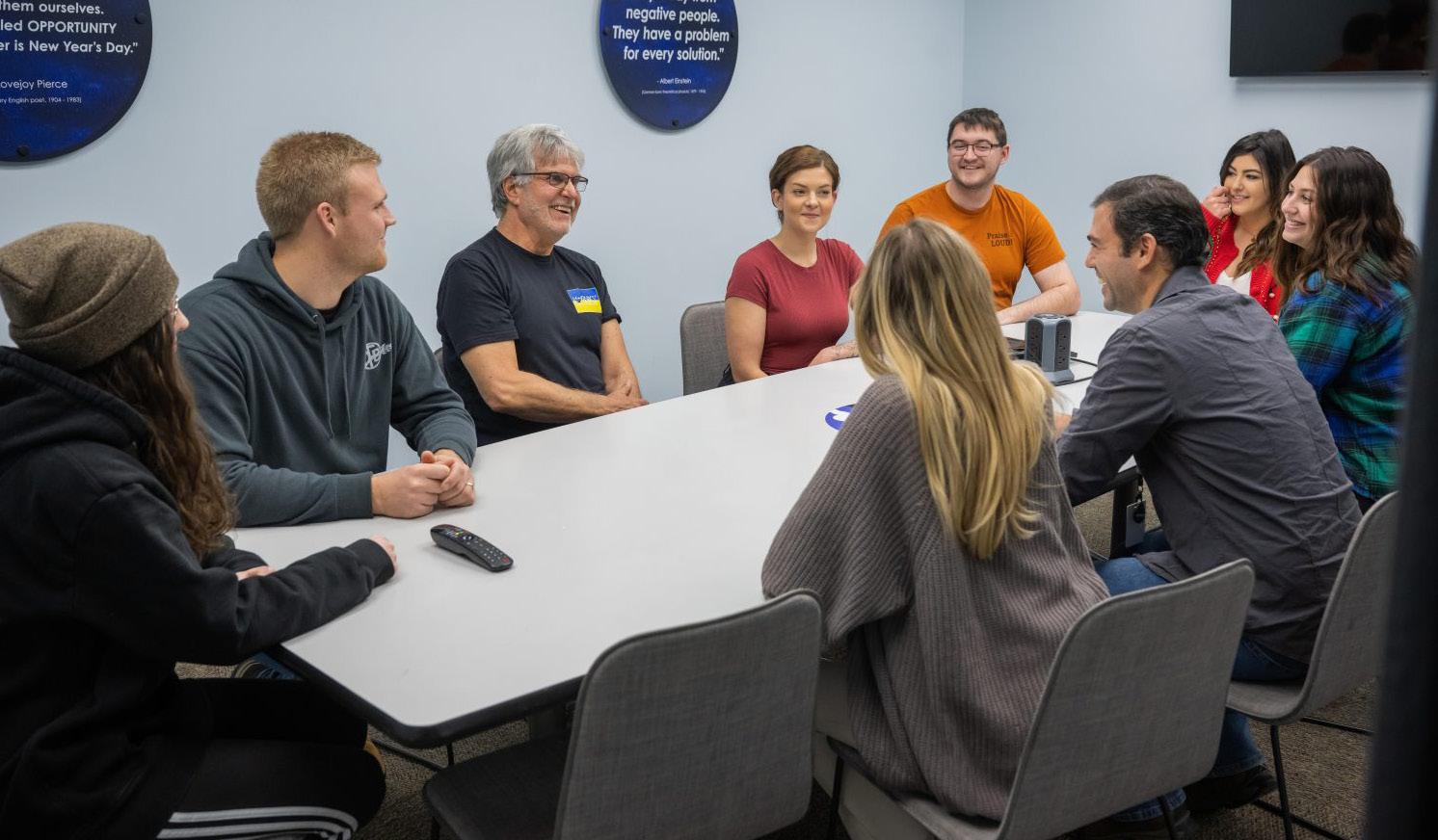
Erie Insurance (NASDAQ: ERIE) recently announced that Julie Pelkowski has been named executive vice president and chief financial officer (CFO), effective May 1, 2023.

Pelkowski succeeds Greg Gutting, who will retire April 30, in the company’s CFO role. Pelkowski is currently a member of ERIE’s Executive Council and leads ERIE’s Enterprise Office. She will report to ERIE President and CEO Tim NeCastro in her new role.

“Julie’s exceptional leadership within ERIE’s finance division and, most recently, of our Enterprise Office has positioned us strongly for the future,” said NeCastro, in a press release. “I am delighted Julie accepted this promotion and look forward to working with her as we continue to build on ERIE’s long history of financial strength.”
As CFO, she will oversee Controller, Investments, Treasury, Actuarial, as well as the Enterprise Office the company established in January 2022.
Prior to taking on leadership of the Enterprise Office, Pelkowski served as senior vice president and controller and as co-lead for ERIE’s Destination 2025 corporate strategy program. She began her financial career in 1991 with Deloitte & Touche in Pittsburgh and joined ERIE in 1998 as an internal auditor. Pelkowski entered ERIE leadership in 2006 as a Financial Reporting supervisor and advanced through the leadership ranks within finance. She was named vice president of Financial Reporting in 2014. In 2015, she assumed the role of interim controller, becoming senior vice president and controller in August 2016.
A native of Erie, Pelkowski earned a bachelor’s degree in accounting from Clarion University of Pennsylvania. She is a certified public accountant (CPA) and is a member of the Pennsylvania Institute of Certified Public Accountants.

The Manufacturer & Business Association (MBA) recently hired Carley Biebel as a digital media specialist. In this part-time role, Biebel maintains and develops the organization’s many social media channels and web platforms. She also provides support for the MBA’s email campaigns and design needs.
The Union City native’s previous work experience includes as an intern and designer for Revox Media.
Biebel is a graduate of Mercyhurst University where she earned a bachelor’s degree in graphic design with a focus on communications. She currently resides in Edinboro.

Howard Industries announced the hiring of John Krahe as vice president of Operations. Prior to joining Howard Industries, Krahe was with the Manufacturer & Business Association for over 30 years where he most recently served as the president and chief executive officer. He brings with him a robust skill set in business process improvement, effective team building and executive communications.
In his role as VP of Operations, Krahe will work with senior team members and department managers to promote effective and efficient company operations using LEAN practices. Krahe also will maintain and enhance the standards of performance, customer service quality and ongoing production process improvements involving the proper coordination of equipment use, proficient supervision of personnel and effective staff training. Howard Industries, headquartered in Fairview Township, Pennsylvania, is a wholesale manufacturer of custom interior and exterior architectural signage.
With over a decade worth of fundraising and development experience, most recently as the director of development at PennWest Edinboro, Jessica Gray will now lead Erie United Methodist Alliance’s (EUMA) growing marketing, communications, fundraising and volunteer department. She began her tenure at EUMA on January 23, 2023.
Gray is a two-time alumna from Edinboro University. She most recently completed her master’s in Communications Studies with an emphasis in Management and Leadership. An Erie’s 2018, 40 under 40 recipient, Gray is an Erie Ambassador graduate, primary fundraiser for the Edinboro Food Pantry and created the PennWest Edinboro Student Hardship Fund.
When reflecting on the move to EUMA, Gray states, “The work to end homelessness is something I feel to my core. EUMA’s staff, volunteers, partners and donors — they don’t just talk about the mission, they live it and breathe it. I’m excited to be a part of that. God has assured me, time and time again, that EUMA is where He wants me to serve.”
EUMA provides life-changing opportunities for those who live at the margins of homelessness to become vital members of the community.
The Erie Community Foundation (ECF) and its Board of Trustees recently announced the appointment of Ricardo “Ric” Giles as director of Philanthropic Services.

“This is an exciting time to be at The Erie Community Foundation,” said Giles. “I am honored to engage with an entity so deeply committed to serving the people of this community.”
In his new role, Giles is responsible for developing and stewarding donors in all aspects of their philanthropy and integrating best practices into the work of the Philanthropic Services team.
Prior to joining the Foundation, Giles worked as director of Development & Corporate Relations at Mercyhurst University. Preceding Mercyhurst, he had a diverse career that included pharmaceutical sales, college admissions and health-care operations.
Giles earned a bachelor’s degree from Clarion University. He serves on the board for the Greater Erie Economic Development Corporation and has received many prestigious awards and honors.
“On behalf of the Foundation’s Board of Trustees and staff, we are thrilled to welcome Mr. Giles to The Erie Community Foundation. We are confident his extensive community expertise and experience with donor development will be key to his success, which will lead to greater impact on our region,” said ECF President and CEO Karen Bilowith.
The Erie Community Foundation works to improve the quality of life for all in our region by evaluating and addressing community issues, by building permanent charitable endowments and by promoting philanthropic and community leadership.

The total cost of the University of Pittsburgh Workforce Opportunity for Rural Communities project at Titusville is $7,210,631. The U.S. Department of Labor–Employment and Training Administration WORC grant provides $1,150,631 (16%) of the funds. The remaining $6,060,000 (84%) is funded through other non-federal and state resources. The University has partnered with one sub-grantee, the Manchester Bidwell Corporation, which has committed $466,960 with $35,850 (8%) funded by the U.S. Department of Labor–Employment and Training Administration WORC grant.






Jezree Friend is assistant vice president of External Relations at the Manufacturer & Business Association. Contact him at 814/8333200, 800/815-2660 or jfriend@mbausa.org.

In the first three weeks of Governor Josh Shapiro’s new administration, he has taken steps in an apparent attempt to court Pennsylvania’s business community by issuing several executive orders to increase Pennsylvania’s business attractiveness. While there is much to be done and questions remain on his approach to energy, here are the initial updates and suggestions to keep the ball going.
Governor Shapiro issued an executive order to create a new office named the Pennsylvania Office of Transformation and Opportunity. According to the Shapiro administration, it will help develop and lead an overall growth strategy and implement economic development projects — coordinating with Commonwealth agencies, expediting permit reviews, and ensuring the speed of business review and approval of key incentive programs. Instead of forcing business to go to multiple agencies for permits, approvals and funding, the Office will serve as a “one-stop shop” to cut through red tape, bring state agencies together, support Pennsylvania
businesses that want to grow and encourage other businesses to move to Pennsylvania.
The idea here is to prevent businesses looking to grow or apply for funding from laborious application processes, which often includes up to five different agencies and a long timeline. The new office will be led by a “transformation and opportunity czar” overseeing a strategy group composed of cabinet members and state agency heads. Their job will be to advise the governor on economic development projects and ways to attract and retain employers.
The second executive order also seeks to reduce the permitting and licensing process time. As of January 31, state agencies were directed within 90 days to compile and send Shapiro a catalog of the licenses, certificates and permits they issue, at which point the administration will review, analyze and establish efficient application-processing timelines for all occupational permits or licenses based on agency recommendations — with a money-back guarantee if the application is not processed in time.
Although the list of reforms needed to slow the bleed as Pennsylvania’s business competitiveness falls to the bottom of the list, perhaps the most timely and significant step to address is for Shapiro to reject the Regional Greenhouse Gas Initiative (RGGI).
RGGI is an agreement among a group of states to require power plants to pay additional fees, a fancy term for new
taxes, on emissions. This is on top of the more than $2 billion in impact fees the state has already received.
Shapiro’s position is ambiguous after he criticized then-Governor Tom Wolf for joining RGGI and even campaigned as an “all-of-the-above” energy governor. However, while attorney general, Shapiro’s office approved the decision for Wolf to move forward with RGGI. Joining RGGI would have a direct negative consequence to the over half million jobs the energy industry provides in Pennsylvania and must be given strong consideration.
As well intentioned as a money back guarantee may sound, the implication of a pending refund because the state’s bloated bureaucracy is unable to process license requests in a reasonable time is not comforting.
Furthermore, businesses looking to expand or move to Pennsylvania need the government to move at the speed of business. If the new governor wants Pennsylvania to be marginally competitive, hard decisions and drastic overalls need to be made fast.
Shapiro’s effort is a step in the right direction his predecessor never considered. However, if he wants to create hope for Pennsylvania’s economy, he needs to reject RGGI, go all-in on Pennsylvania’s energy resources, refuse to let other states beat us on permitting, expedite the CNI reduction plan and commit to our workforce




As a Millennial, I grew up with computers. In the mid-90s, we learned DOS commands and how to use a keyboard, but really, we were just trying to keep our oxen alive on the Oregon Trail. The first version of Excel, for example, was released for the Apple Mac in 1985 and the first Windows version was released in 1987.
Fast forward to today’s rapidly changing workplace. Computer literacy is undeniably a crucial and invaluable skill. Making sure your employees are current with their basic computer skills can help you better market your products, track inventory and improve your profits.

Studies have shown that computers increase productivity, but those gains can only be realized if employees are comfortable and experienced with the systems. Not only do computer skills in the workplace help keep your staff productive and efficient, but these skills also cultivate soft skills such as:
1. Analytical and creative thinking
2. Problem solving
3. Leadership and teamwork
4. Adaptability
The combination of both the new knowledge and increased performance often improves employee morale and job satisfaction. This is good for both employees and employers. Set your employees up for success to forge the trail ahead! From Excel, PowerPoint and Word to Access, Outlook, Power BI and more, learn new skills and discover the power of Microsoft products with step-by-step guidance. Check out the special insert in this issue of the Business Magazine to see all available computer classes the MBA has to offer!
The skills gap in the United States is rapidly spreading to more organizations, according to the latest annual Closing the Skills Gap report by Wiley University Services.
Wiley’s research suggests companies are having an increasingly difficult time attracting and retaining workers who have the skills needed to fill their open jobs. Among 600 U.S. human resources professionals surveyed, 69 percent said their organization has a skills gap, up from 55 percent in a similar survey in 2021.
“This widening of the skills gap is concerning and not likely to end soon,” said Todd Zipper, executive vice president at Wiley. “The demand for skills keeps evolving faster, and it’s increasingly hard for companies and higher education institutions to keep up, particularly when it comes to soft skills. Indeed, there’s now a greater demand for soft skills over hard skills following the pandemic.”
The growing skills gap has led to staffing challenges, making it harder for organizations to recruit and retain talent. During the last year, nearly half of employers in Wiley’s survey reported that at least 10 percent of their open roles went unfilled, but that figure rose to 20 percent among employers who said they have a skills gap. These challenges can cause organizations to become less efficient and less competitive.
Casey Naylon
is the computer trainer and database administrator at the Manufacturer & Business Association. Contact her at 814/833-3200, 800/815-2660 or cnaylon@mbausa.org.
After trending up in recent years, a Gallup survey found that employee engagement in the United States saw its first annual decline in a decade — dropping from 36 percent engaged employees in 2020 to 34 percent in 2021. This pattern continued into 2022, as 32 percent of full- and part-time employees working for organizations are now engaged, while 18 percent are actively disengaged. Active disengagement increased by two percentage points from 2021 and four points from 2020. Gallup measures employee engagement by asking random samples of the working population about specific workplace elements that link to many organizational outcomes, including profitability, productivity, customer service, retention, safety and overall well-being.
Gallup conducted quarterly surveys of the working population during 2022 — random samples of approximately 15,000 U.S. full- and part-time employees each quarter
Yes. The PUMP for Nursing Mothers Act expands existing employer obligations under the Fair Labor Standards Act (FLSA) to provide an employee with reasonable break time to express breast milk for the employee’s nursing child for one year after the child’s birth. The employer obligation to provide a place to express milk shielded from view and intrusion from co-workers and the public (other than a bathroom) continues.
The PUMP for Nursing Mothers Act biggest change to employer obligations is that such rights extend to all employees, not just nonexempt workers. The break time may be unpaid unless otherwise required by federal or state law or municipal ordinance.
Employers should ensure that non-exempt nursing employees are paid if they express breast milk during an otherwise paid break period or if they are not completely relieved of duty for the entire break period. Exempt employees should be paid their full weekly salary as required by federal, state and local law, regardless of whether they take breaks to express breast milk.
The PWFA applies to employers with at least 15 employees and becomes effective on June 27, 2023.
Like the Americans with Disabilities Act (ADA), the PWFA includes the obligation to provide reasonable accommodations to qualified pregnant employees so long as the accommodations do not impose an undue hardship. Many courts have determined that pregnancy alone was not a disability entitled to accommodation under the ADA.
Under the PWFA, employers will be required to provide reasonable accommodations to employees and applicants with known temporary limitations on their ability to perform the essential functions of their jobs based on a physical or mental condition related to pregnancy, childbirth and related medical conditions. The PWFA adopts the same meaning of “reasonable accommodation” and “undue hardship” as used in the ADA, including the interactive process that will typically be used to determine an appropriate reasonable accommodation.
The Federal Trade Commission (FTC) recently published a proposed rule that would ban noncompete clauses in employment agreements. The FTC’s proposed rule is based on President Joe Biden’s 2021 Executive Order on Promoting Competition in the American Economy (FTCA). This order encouraged the agency to exercise its statutory rule-making authority under the Federal Trade Commission Act to “curtail the unfair use of noncompete clauses and other clauses or agreements that may unfairly limit worker mobility.” If adopted, the FTC’s rule would:
• Ban employers from entering into noncompete clauses with workers and independent contractors.
Require employers to rescind existing noncompete clauses with employees.

• Require employers to actively inform their employees that their noncompete agreements are no longer in effect.
The agency’s proposed rule includes a limited exception for noncompete clauses between a seller and buyer of a business. Additionally, nondisclosure and non-solicitation agreements are excluded from the definition of a noncompete clause.
Under current law, noncompete agreements are governed by state and common law. Most states place limits on noncompete agreements, requiring their geographic scope, duration and competitive activity restrictions to be reasonable. While several states have banned or restricted the use of noncompete agreements, the FTC’s proposed rule would create a nationwide ban on noncompete clauses. If the rule becomes final, employers would be required to rescind existing noncompete clauses and notify employees who have been subject to these clauses of the rescission in writing within 45 days of the rule’s implementation.
Comments on the proposed rule are due 60 days after the FTC publishes the proposed rule in the Federal Register. Once the comment period has closed, the agency may reopen the comment period, issue a new proposed rule, terminate its rulemaking, or move on to a final rule. As currently drafted, the FTC’s rule would become effective 60 days after the final rule is published in the Federal Register, and employers would have to comply with the new rule within 180 days of its publication. However, it will likely be some time before this proposed rule becomes final, if ever, as the agency’s rule is likely to be challenged legally.
Tammy Lamary-Toman, JD, PHR is vice president and employment counsel at the Manufacturer & Business Association. Contact her at 814/833-3200, 800/815-2660 or ttoman@mbausa.org.
Join


April 18, 2023 5:00 p.m.
Northern Pennsylvania Regional College (NPRC) is where distance learning technology and live classroom instruction meet you where you are - Close to home. NPRC is your local two-year college offering associate degrees, certificates, and workforce training.


At NPRC, when it comes to your future, we don't see obstacles, only possibilities. Our welcoming community supports you as you discover your path to success.
Northern Pennsylvania Regional College is authorized by the Pennsylvania Department of Education to grant associate degrees and certificates in the Commonwealth of Pennsylvania and is actively pursuing accreditation.
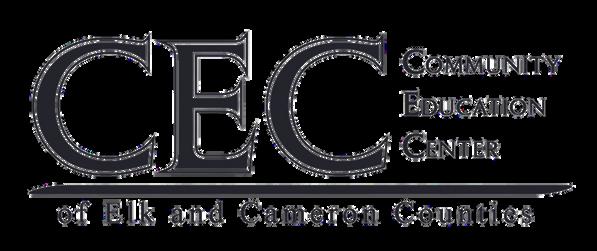







The Manufacturer & Business Association is proud to recognize recent graduates of its certification programs, including Excel Application Specialist, HR Essential, Marketing and Communications, and Supervisory Skills Series. To learn more about the Association’s training programs, visit mbausa.org.


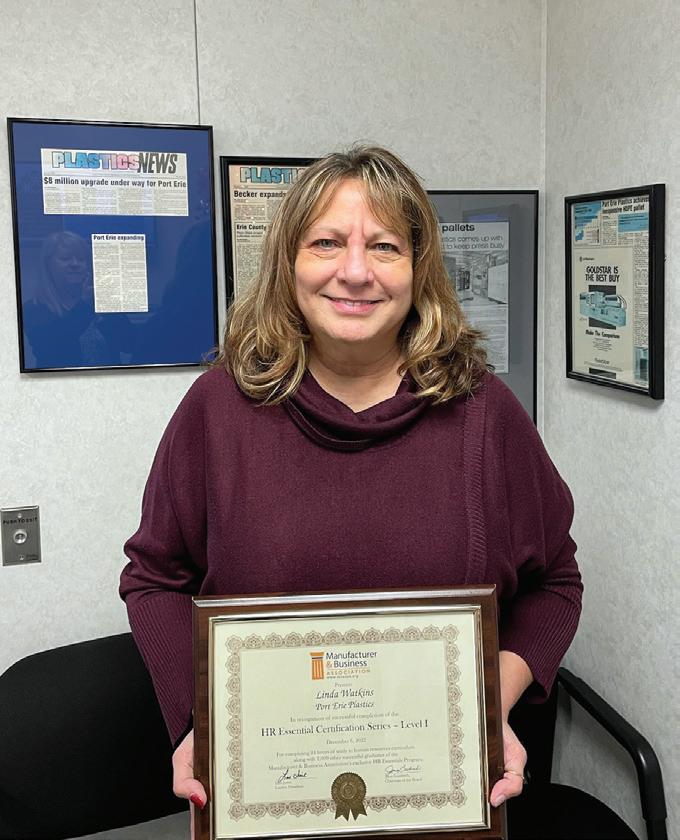



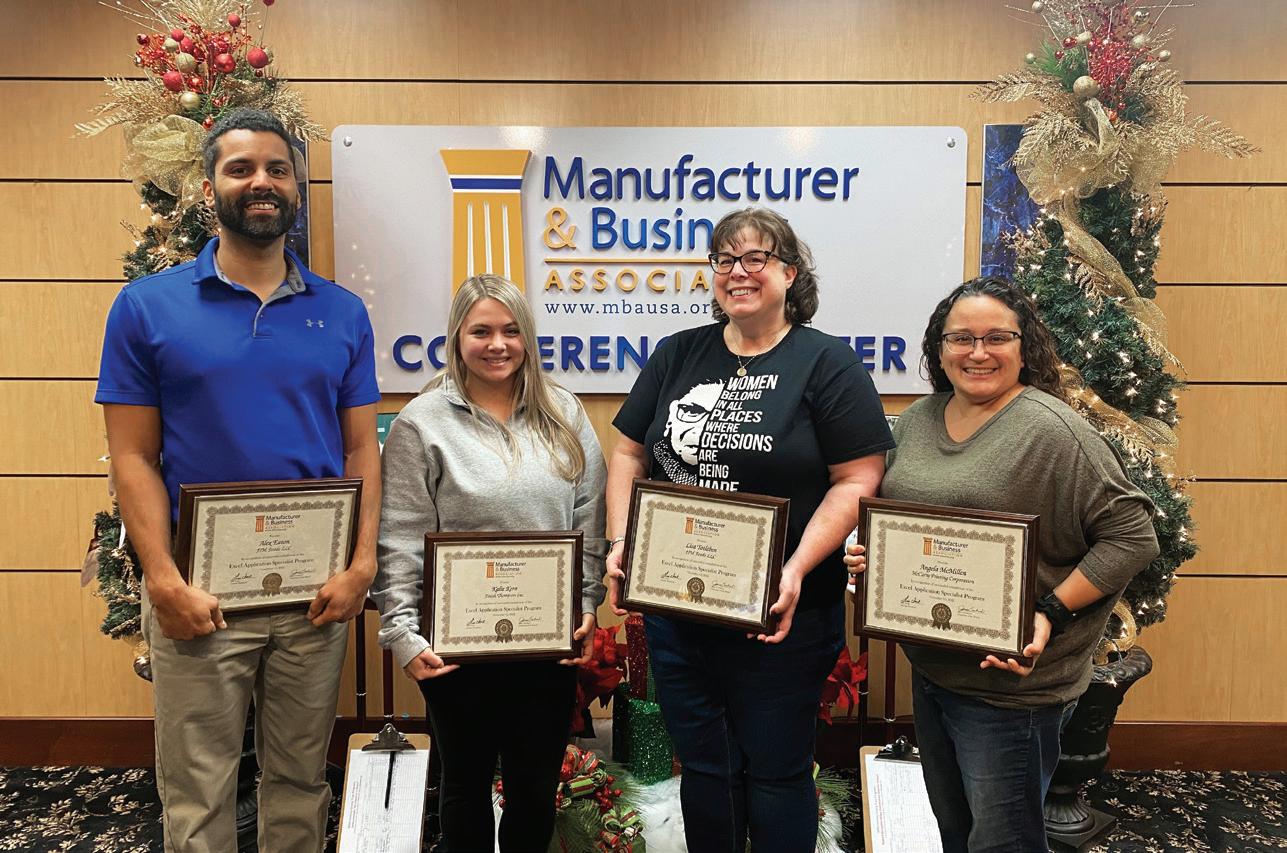 Excel Application Specialist Certification Series — Erie
Excel Application Specialist Certification Series — Erie
For details, visit erie.ahn.org/about/recognitions.
The Manufacturer & Business Association is thrilled to showcase our members’ accomplishments and regularly hosts a variety of informational and networking opportunities for them in the region. To learn more about upcoming events, visit mbausa.org.


On March 8, the MBA hosted an Eggs ‘n’ Issues briefing in Erie on Open AI’s ChatGPT. A great breakfast was served as top AI minds — Timothy Kurzweg, Ph.D. (left) and Pulin Agrawal, Ph.D. (right) of Penn State Behrend — discussed the critical link between artificial intelligence and our datadriven world.
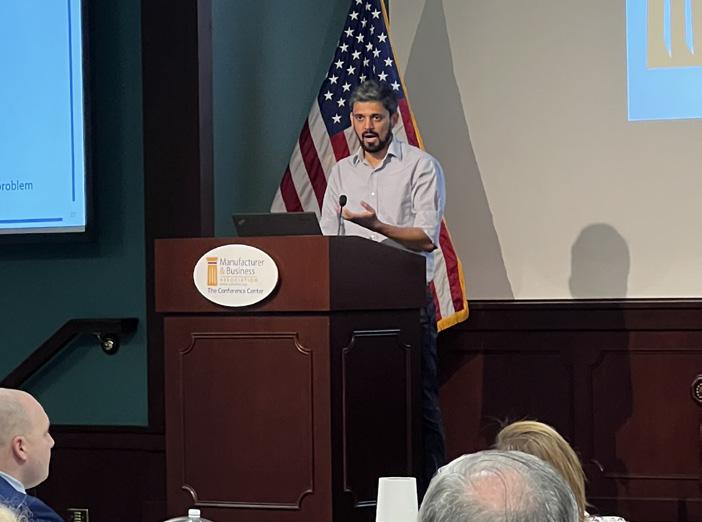
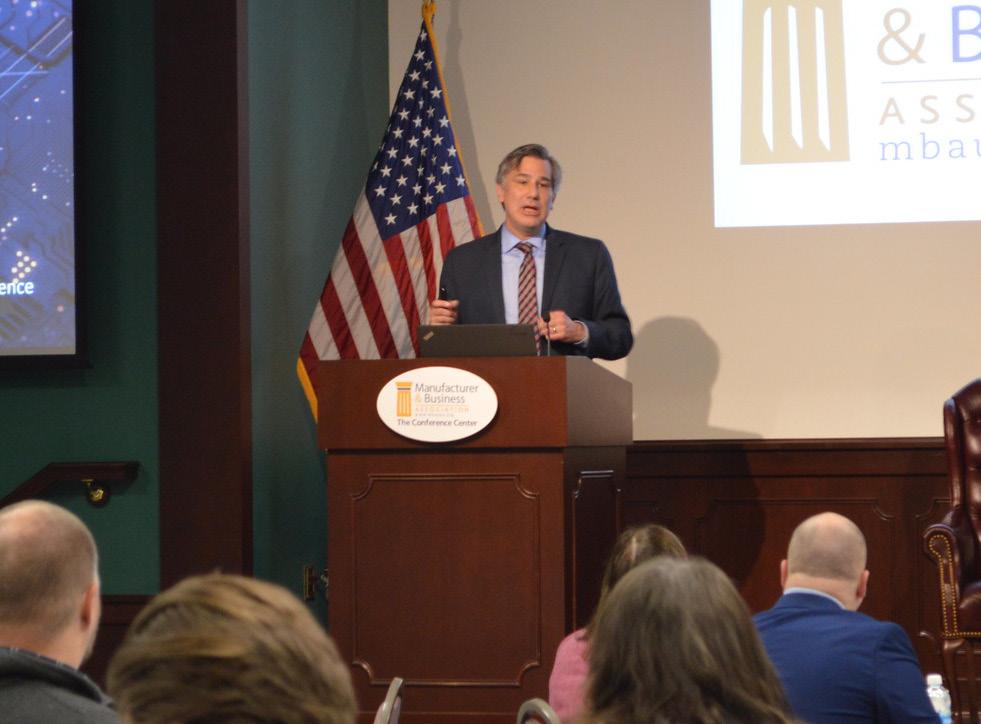
Congratulations to Dan and Jan Niebauer at Ralph Miller Jewelers on celebrating 125 years in business. Known as the “jeweler’s jeweler,” the couple designs and creates one-of-a-kind fine jewelry in Erie, Pennsylvania.

You





Trust
Access
Value
No matter the size of your business, we have the right plans to meet your team’s needs.


